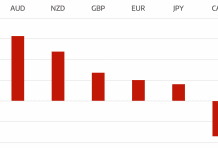As an investor, it’s extremely important to stay current on all things related to taxes. You can easily lose everything if you are convicted of tax fraud, even if it was a simple mistake or an error made by one of your employees. That’s why it’s critical to hire people who work for you who have excellent financial acumen, a track record of good financial decisions, and who don’t have any tricky skeletons hanging out in their closets. There are many ways to do this, but here are some of the top things you can do to minimize the risk.
Check References and Past Employers
While everything may look good on paper, it’s vital that you check on references and past employers before you hire. Investors often employ people who have access to their finances, which requires a huge level of trust. You don’t want someone who will steal from you or commit fraudulent activities. While there are certain things you cannot ask past employers, you can gauge if the applicant was honest based on their title and dates of employment. For instance, if they said they were a manager at a job but their job title there was not management, you’ll know they weren’t honest.
File Payroll Taxes On Time
One of the easiest ways to get accused of tax fraud is to stop paying payroll taxes to the government. You want to make sure that whoever is in charge of making this happen will do it correctly and on time. Payroll taxes are due throughout the year. Use a reputable third-party company or great team member to get this done right every time. It’s critical. Running a business means you need to consider all the different kinds of taxes you’ll pay. There are different ones for investments, payroll, properties, and more. Payroll taxes are one way to show that you are not committing fraud in your business.
Run a Background Check
Anyone who will handle money or have insight into company finances must have a background check. Many savvy business owners choose to have everyone in the company go through the same background check to ensure everyone is treated the same. Background checks can reveal if anyone has been convicted of tax fraud or other financial crimes. For an investor, hiring someone with a history of criminal activity may not be a good choice.
Credit Checks
A good credit score shows you someone who is responsible to pay off debts, who doesn’t carry too high of a debt load for their income, and someone who can be trusted to handle other people’s money. A bad credit score shows you someone who has either made some poor financial decisions and is in the process of fixing it, someone who carries too high of a debt load for their income, someone who had an unfortunate series of events, and more. A poor credit score may not be a deal-breaker depending on the circumstances surrounding it. But a poor credit score is definitely a red flag to tell you that you need to ask more questions of your candidate.
Did They File Their Taxes on Time?
Sure, sometimes it’s okay to be late with taxes. But it’s vital that the people who work for you know how to meet a deadline. Filing taxes is at the same time every year. There really aren’t a ton of excuses to miss this important deadline each year. Finding out whether or not your future employee has ever evaded taxes or given the appearance of evading them is crucial. You want to reduce your risk of tax fraud for your own business, so you cannot hire someone who has committed it in their personal finances. Tax fraud is a serious offense that can impact your business.
Running a financial business is exciting and rewarding. Hiring people to work with you requires due diligence to ensure they are not only qualified to do the job but that they have the integrity to do it well. You need to protect your assets and one way to do this is by performing rigorous checks on everyone who works for you. Credit checks, background checks, and checking on tax status are just a few of the ways to do this.
HedgeThink.com is the fund industry’s leading news, research and analysis source for individual and institutional accredited investors and professionals





































